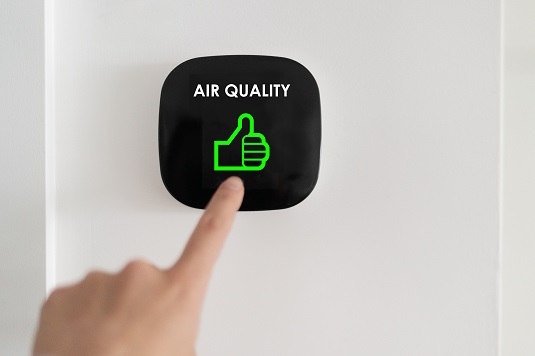Making Homes and Buildings Safer Inside Post-Covid

How Healthy is the Air Inside Your Home?
January 22, 2022Mold in Construction
May 8, 2022While the Covid pandemic has affected nearly every aspect of our lives, one area in which it has generated special interest is our indoor air quality. What used to be regarded as an afterthought during the inspection process has now taken center stage. Clearly, there’s been a strong shift in the way people understand the link between air quality and illness. Among other things, Covid showed beyond a reasonable doubt that poor indoor air quality can make people very sick.
Individual States Address Air Quality Issues as Businesses Open Back Up
Now that businesses are starting to open up and welcome employees back into the office as Covid retreats, companies have an even greater responsibility to ensure workplace safety and air quality to protect the health of all occupants.
Yet even before the pandemic swept across the country, many states were already requiring inspections and testing in homes and buildings where mold and other environmental issues may exist. In New York city, for example, the city council passed Local Law 55 in an effort to control rising asthma rates and air quality concerns among NYC residents. This law stipulates that landlords or property owners of buildings with three or more apartments must proactively address and seek to prevent common indoor health hazards that trigger asthma.
Five other states, California, Colorado, Massachusetts, Vermont, and Virginia, and the District of Columbia have passed legislation spelling out a landlord’s obligation to handle and prevent mold contamination as part of the landlord-tenant law or building/sanitary code
In fact, Illinois law requires landlords to disclose known elevated radon levels, and the state of Maine now requires landlords to test for and disclose radon levels in their properties. In addition, Florida law mandates that all rental contracts include a notification regarding the health risks of radon.
Reduce Occupancy to Raise Air Quality
Although it certainly helps to enact regulations regarding contaminants like mold or radon, people are usually the main source of indoor contaminants. With Covid-19, your chances of being infected depend on the size of the room and the number of infected people present.
Consequently, one of the best solutions for reducing the rate of transmission is to lower the number of people in offices or classrooms. By allowing for proper social distancing, you can lower the risk of close contact transmission. It also cuts down the number of infections that would happen if there is a contagious person present. If you reduce the amount of people in a space by half, the ventilation now provides twice as much outside air per person, which helps overall air quality.
Whenever you increase ventilation with outside air, you reduce the transmission of airborne diseases by decreasing the concentration of infectious air particles.
Better Air Filtration Will Play Key Role Going Forward
Because air filters are a huge factor in improving indoor air quality, you can also lower the risk of Covid transmission by upgrading your HVAC filtration system. Although it helps to raise the amount of outside air that you bring into a space, it’s also important to filter the air that is recirculated. For this reason, it never hurts to ask a building manager or a school representative if the HVAC filtration has been updated.
Portable Air Filters with HEPA Filtration Can Make a Difference
If HVAC filters cannot be improved or there are no windows in an interior space, portable air filters are another viable solution. In fact, scientists claim that portable air purifiers with HEPA (high efficiency particulate air) filtration can extract the virus particles that cause Covid-19.
Indeed, portable HEPA filters can get rid of over 99% of airborne particles regardless of their size. The good news is that in-room units with HEPA filters can step in to improve air quality when an existing HVAC system is not sufficient.
Along with the recent boom in real estate, there’s a much greater demand for indoor air quality testing and remediation as the nation struggles to return to normalcy in the wake of the coronavirus pandemic. As a result, home sellers, real estate agents, property managers and landlords are doing everything they can to comply with legal thresholds regarding indoor air quality while homeowners and homebuyers try to safeguard their own long-term health. Fortunately, there are a number of steps that homeowners, business owners, and schools can take to minimize the danger of future outbreaks of Covid and other infectious diseases.





